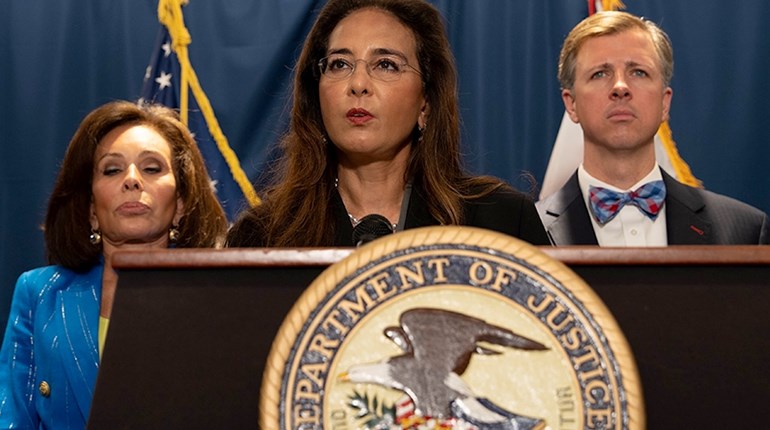
The process for buying a firearm from a Federal Firearms Licensee (FFL), like your local gun shop, is simple enough—for the consumer. The potential gun buyer first fills out and signs a Form 4473 published by the Bureau of Alcohol, Tobacco, Firearms and Explosives (ATF). The FFL then relays the Form 4473 information to the FBI Criminal Justice Information Services Division’s National Instant Criminal Background Check System (NICS) Section.
However, the “Instant” in the NICS title is a little misleading. Yes, some NICS requests sail right through, but others can take several hours, days, or weeks. At some point, though, NICS does send the FFL notification that the firearm transfer may “proceed,” or has been denied or delayed.
Under new regulations that go into effect October 1, all NICS “denied” transactions must now be transmitted to local law enforcement, within 24 hours of the denial. NICS must provide law enforcement with the date and time of the NICS denial, the reason for the denial, the location of the FFL and the identity of the person who has been denied the ability to purchase the firearm. The NICS denial notifications will be transmitted electronically to the appropriate receiving authorities within each state based on the city, state, county and zip code combination of the FFL’s location.
This new regulation comes about thanks to the Consolidated Appropriations Act of 2022, a federal bill signed into law on March 15. Section 1101 of the Act included the “NICS Denial Notification Act of 2022,” requiring the above-noted notification for denials of firearm transfers.
NICS can deny a potential firearm purchase for a number of reasons, including the purchaser being a felon or having been found guilty of a misdemeanor domestic violence charge. Other reasons for a NICS denial include, but are not limited to: having been discharged from the Armed Forces under dishonorable conditions; having been a citizen of the United States who has renounced their U.S. citizenship; and, being the subject of a court order that restrains the person from harassing, stalking, or threatening an intimate partner or child of an intimate partner.
But NICS can, and frequently does, also generate a “DELAY” notification on a potential firearm purchase. A delay can occur, for example, when NICS has incomplete information on hand and needs more time to verify some facts about the individual’s history. A person undergoing a NICS check can also have the same name as a known felon, and this could require additional time to determine if the “John Smith” who filled out the Form 4473 is the same “John Smith” convicted of armed robbery in 2015.
The NICS system can also simply be overwhelmed at times, and not be able to process the background check right away.
With a “delay”, the FFL has the ability to proceed with the transfer of the firearm after three business days, not including the day the Form 4473 was submitted, at the FFL’s discretion.
But with the NICS Denial Notification Act of 2022, there appears to be a new procedure in place for any “delay” responses that are generated. If a NICS check leads to a “delay” notification, the FFL will be asked for the address of the individual undergoing the check, just as if the NICS check was denied. Why ask for this information on a delay?
“The reason NICS has given to us for asking for the address when it is a delay is because they will not have enough time to re-contact the FFL to obtain the buyer’s address and make the required report to law enforcement within 24 hours, as required by the new law,” said Larry Keane, senior vice president of government and public affairs for the National Shooting Sports Foundation.
Keane added that if a delay is later determined to be able to “proceed” by NICS, then NICS is required by law to purge the buyer’s address from their system within 24 hours. But what if the delay is never resolved one way or the other? When this happens, and it does, federal law requires NICS to purge all information related to the delay, including the buyer’s address, after 88 days. According to Larry Keane, these changes to NICS and FFL reporting should be a “seamless” process for a gun buyer. All he or she will need to do is what they’ve done in the past: fill out Form 4473, have their FFL forward the information to NICS, and wait on the results.
However, the new reporting requirements could very well mean extra paperwork for FFLs, and that might not make the experience as “seamless” for FFLs as it will be for their customers.
As A1F.com has reported, the ATF appears to be closing down FFLs at an alarming rate, often for small, clerical errors.
“In recent months, the number of FFL revocation proceedings initiated by the ATF has skyrocketed and ATF has reportedly adopted an officially sanctioned practice of basing revocations on minor infractions discovered in previously-closed inspections,” wrote Rep. Andy Biggs (R-Ariz.) in a July letter that was also signed by 24 other members of the House of Representatives.
Given the ATF’s current stance on FFLs, one has to wonder if the paperwork that will be generated by the new reporting requirements might open the nation’s FFLs to even more risk of being shut down for simple, innocuous mistakes.
Note: A1F.com contacted the FBI’s Public Information Office (PIO) via email with a number of question when preparing this story. While the PIO confirmed receiving the email, no answers were received four days later when the story was finished.


































